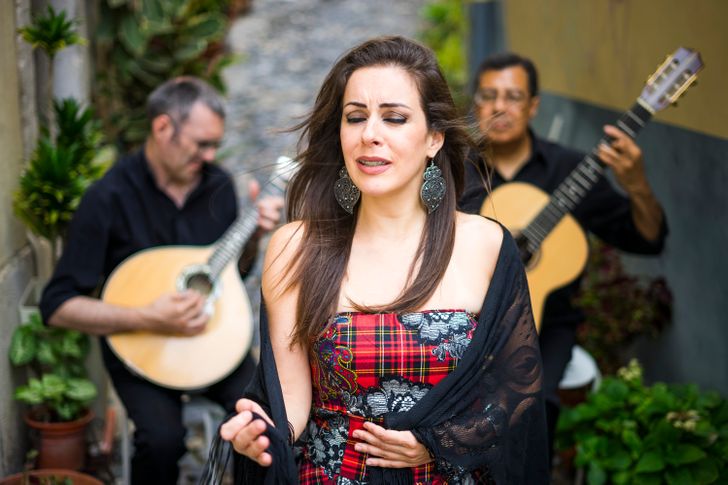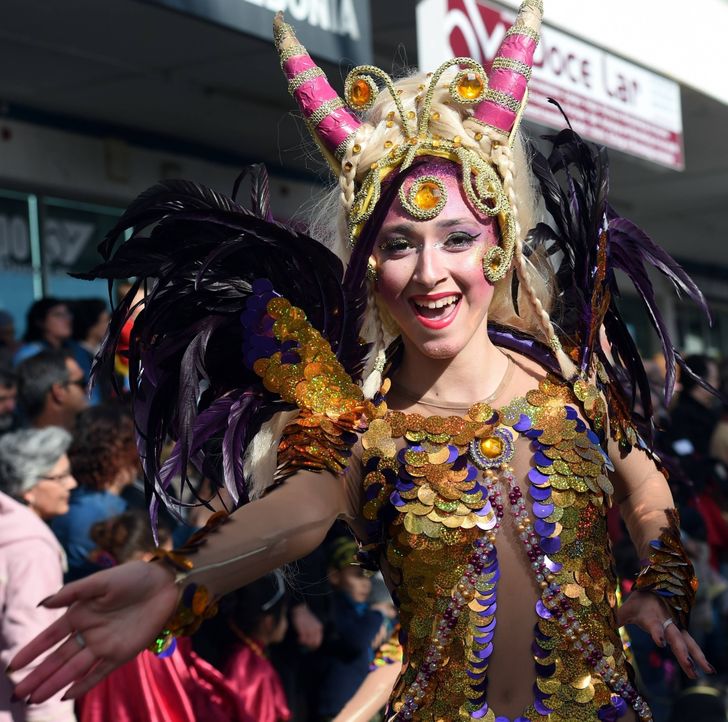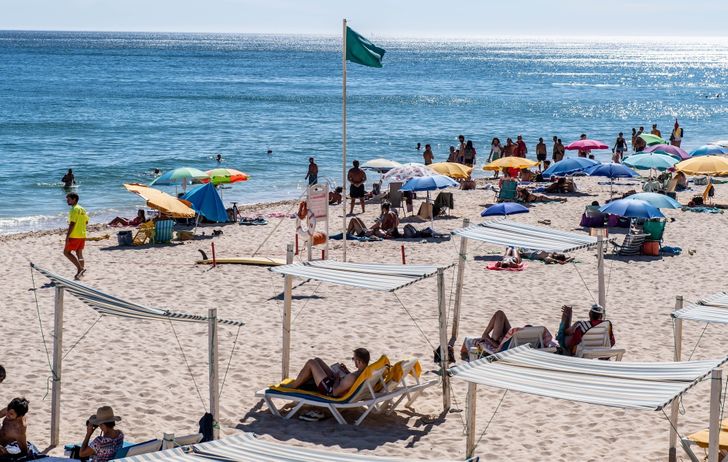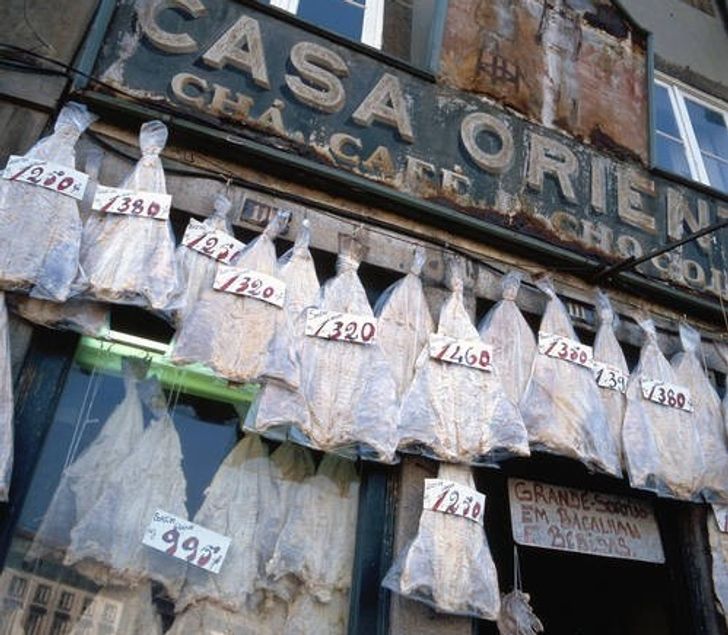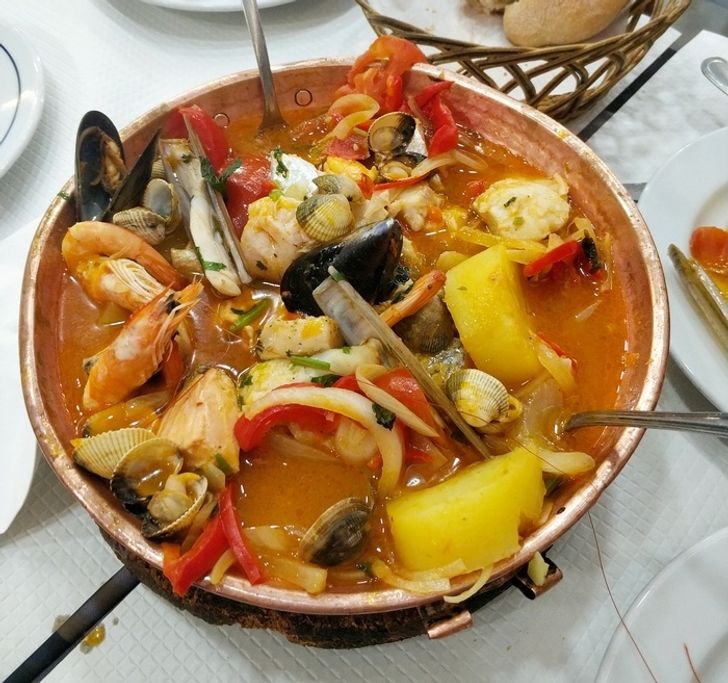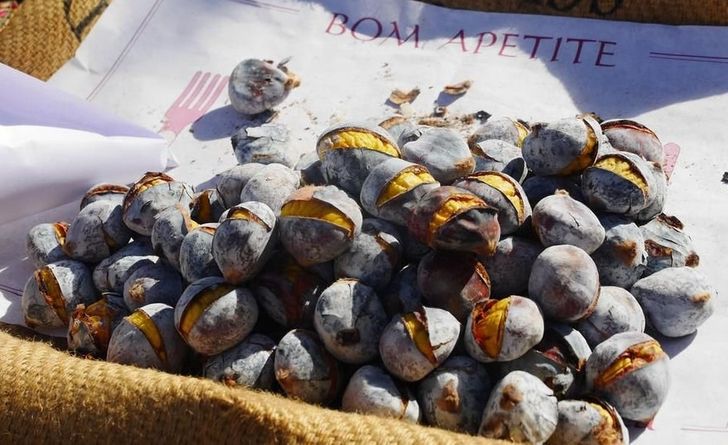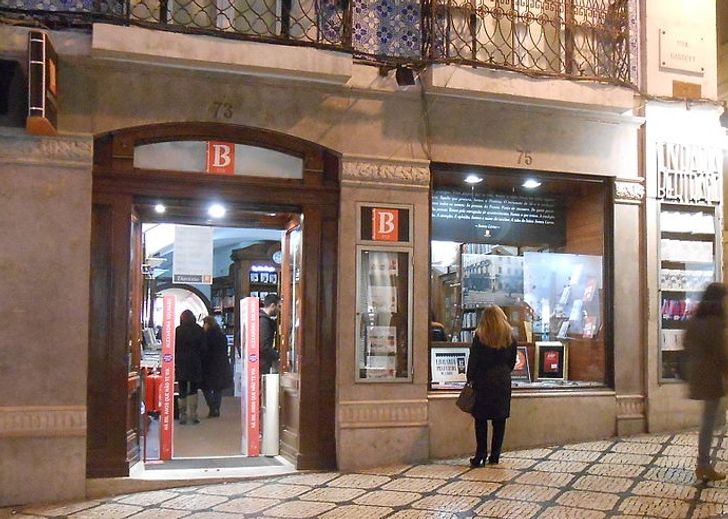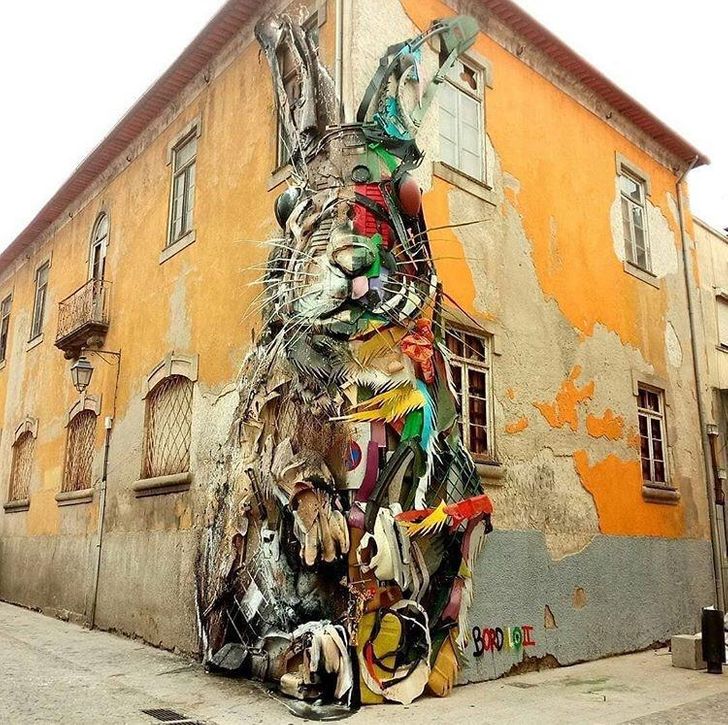okokok imma need to move here, it's me but on a country, childfree, booklover, fado lover I mean EVERYTHING 😍🥺🥰
20+ Things That Make Life in Portugal So Stunningly Attractive
In 2018, Lonely Planet called Portugal one of the best countries to visit that year. Things like the scenery, the national cuisine, and the beaches were listed among the main factors of the country’s attractiveness. In addition, you can find at least 15 UNESCO World Heritage Sites there, as well as be amazed by the prices, which are relatively low for Europe, and enjoy the hospitality of the locals. All of these draw such a huge flow of travelers from all over the world that the country’s citizens asked the authorities to limit the number of tourists coming in.
We at Bright Side dove head over heels into the unique culture of this incredibly sunny country and now we understand that it’s impossible to mistake the Portuguese for the representatives of other nationalities.
1. There is a cult of longing in Portuguese culture.
The main feature of Portuguese culture is fatalism, which is called “Fado” here. It is believed that the right fado will ravage you with melancholy, loneliness, and longing so much that it brings tears to your eyes. There is a special musical genre, which includes songs with sad melodies that are most often about the sea, unrequited love, and the inevitability of fate. This is largely due to the fact that Portugal was a great maritime power. The sailors would set sail, and their relatives would yearn for them with all their hearts.
Therefore, if you are lucky to see a performance of fado, don’t clap your hands at the end of the song. Fado is all about feelings. In 2011, UNESCO recognized this genre as an intangible national treasure. Also, Lisbon has a museum where you can trace the history of fado from the early 19th century to the present day.
2. Life is very measured here.
Local people are not trying to do a million deals at once. No one hurries anywhere, everyone enjoys each moment of their life. Any deals can be postponed until tomorrow. It’s the norm to be 30 minutes or even an hour late for a meeting. Oftentimes, lines in supermarkets move very slowly because the cashier and the customer might suddenly start an occasional chat. At the same time, no one feels stressed out about it, no one sighs, no one rolls their eyes, looks at their watch, or acts resentful.
3. Natural beauty is a priority.
Girls who have moved to live in Portugal outline that local women pay much less attention to makeup and manicures. They look more natural and accept themselves the way they are. There are not many beauty salons in Lisbon and their services are not very diverse.
Here is what a Moscow girl who settled in in Portugal writes, “I went to a local beauty salon located across the street from my house to get my nails done before a wedding. They cut off my cuticle so much that I had to go to the wedding with swollen fingers. After that, I started to visit a Ukrainian salon where everything is top-notch. It is believed that the Slavs succeeded in this and can do nails much better. The prices for their services are almost the same as the prices for the same services in Moscow.”
4. The Portuguese like curvy girls and they have a totally different attitude toward the body.
There is no such thing as body-positive here because all girls know from their very childhood that they should love their bodies and respect the bodies of other people. Cellulite, stretch marks, curviness — people here are not shy about these things and even show these features off. One of the most common outfits worn by women are short denim shorts and a belly-baring top.
5. Surnames in Portugal are quite complicated.
Portuguese actress and model Victoria Guerra. Her full name is Victoria Deborah Lark Guerra.
The surnames of many local residents consist of 2 parts: the first one comes from the father, the second one comes from the mother. In some families, apart from parents’ surnames, they also add the surnames of grandparents, which are also double. It all makes one long name, like wagons on a train. That’s why the Portuguese are the owners of very long surnames that are difficult to both remember and pronounce. By the way, first names are often double too — such as Maria-Louise, for example.
6. Thanks to the Portuguese, those allergic to animals can try adopting a dog.
The Portuguese Water Dog is an almost hypoallergenic pet. It doesn’t shed as much hair like other breeds, it has webbed feet, and it boasts a very calm personality. In the Middle Ages, this breed was used to drive fish into nets. Today, this dog can become a favorite pet for those who suffer from a mild form of allergy to fur.
7. They arrange colorful festivals and celebrations in Portugal that can even outshine Brazilian ones.
Every year this country holds 3 carnivals. However, the Portuguese who decided to bring the style of Rio carnivals to their motherland missed one important thing: they are located in the Northern Hemisphere, while Rio-de-Janeiro is located in the Southern Hemisphere. That’s why, while gorgeous Brazilian women are dancing under the sun at 80°F, their Portuguese colleagues are having fun under the rain at 45°F.
Nevertheless, carnivals are the best time to visit Portugal because one can dive into the culture of the country, see a bright show, try various national dishes, and meet joyful local people. Also, every year on the 23rd of June the city of Porto holds the most colorful celebration in the country — the St. John Festival. One of this celebration’s main traditions is to hit each other on the head with a toy hammer or garlic flower.
8. This country has both the longest and the shortest bridges.
Lisbon has one of the longest bridges in Europe — the 56,381 feet long Vasco da Gama bridge, which serves as a highway. This engineering structure has become a new symbol of the Portuguese capital. Also, there is a small creek flowing between 2 villages — the Portuguese village Várzea Grande and the Spanish village El Marco. The creek serves as a symbol for their borders. Here the 2 countries are connected by the El Marco bridge that is only 10.5 feet long, which makes it the shortest international bridge in the world.
9. Nature in Portugal has preserved the traces of dinosaurs.
Cabo Espichel is a cliff where you can see the traces of dinosaurs that were left millions of years ago. It’s not easy to reach them because the traces have been preserved only on steep slopes, nevertheless, they are vividly visible.
10. This country has one of the cleanest beaches on the planet.
Portugal is one of the 5 countries with many Blue Flag beaches. It is a famous international award for the exceptional quality and safety of bathing water. In recent years, Portugal has been overtaken by states with significantly longer coastlines.
Nonetheless, this country is one of the golden directions for retirement migration. In their golden age, wealthy Europeans come here because of the wonderful climate, low prices, and tax benefits compared to neighboring countries. Tourists love this country too: for its rich culture, delicious food, and the hospitable attitude of the locals.
11. The Portuguese speak foreign languages quite well.
The main secret of this ability is that almost all foreign movies are broadcast both in cinemas and on TV in the original language with subtitles. The official language of the country is Portuguese. It is very close to the Galician language that is used in the north-west of Spain. Sometimes Portuguese is believed to be one of the dialects of the Galician language, other times, it’s vice versa.
As surprising as it might sound, many words in the Portuguese language are close relatives of Japanese words. This is explained by the fact that the Portuguese were the first to establish trade relations with the residents of the Land of the Rising Sun, and they quickly picked up different vocabulary from them. For instance, Japanese words like “pan” — “bread,” “koppu” — “cup,” and even “tempura” — " seasoning" have Portuguese origins.
12. Local people like codfish but they don’t catch it off the coast of Portugal.
Everyone in Portugal eats codfish and it’s mostly bought in Norway. Portuguese chefs say there are 365 ways to cook cod — as many ways as there are days in a year. This fish is the real star of Portuguese gastronomy and it has been consumed here for many centuries. At the same time, it’s impossible to explain why locals prefer this type of fish, especially taking into account that they have such a diverse selection of fresh fish and seafood. The price for fresh fish from the ocean and the price for dried codfish are approximately the same.
13. National dishes are distinguished by the obligatory presence of tomatoes and an abundance of olive oil.
Tomatoes are stewed with rice, fish, and seafood and they are also used for cooking soups. Olive oil is an even more popular product. Not only is this ingredient present in salads and most meat and fish dishes — any dish literally is drowned in it.
Street food in Lisbon is true art — in autumn, the city is filled with the smell of roasted chestnuts. One Portuguese man wrote the following in his blog, “One time a Canadian man asked me when seeing chestnuts, ’Do you eat those?’ and I immediately replied, ’Of course!’ He said chestnuts in Canada are for ornamental purposes only. I was horrified! What a waste!”
14. The Portuguese are very shy when it comes to relationships.
Both men and women behave quite modestly, especially when they are just starting to date. They rarely say “Eu amo-te” (“I love you” in Portuguese) and rarely express their emotions in public. It doesn’t mean that the Portuguese are not capable of love, it’s just that they express it differently. They do give compliments here, but they are quite scarce.
15. They have very peculiar wedding traditions.
Putting money into a shoe is an old Portuguese wedding tradition that is still around. In order to help the newlyweds at the beginning of their family life, it’s customary to collect money for them at the wedding. For that, the bride’s shoe is passed from hand to hand and everyone can put inside as much money as they want. Another money ritual is to buy the right to dance with the bride.
16. Portugal is the world’s leading manufacturer of cork.
The production of cork is very environmentally-friendly because it doesn’t require the destruction of trees. They use this material not just for producing corks for bottles, but also for creating various accessories like bags, gloves, phone cases, caps, and even shoes. What’s surprising though, is that cork is a very strong material, it can perfectly stand cold temperatures and rain because the process of processing natural raw materials is complex and multistage.
This is how the material for cork is collected.
17. Locals believe in the power of nature and take good care of it.
52% of the country’s electricity comes from renewable sources. The Portuguese are passionate about flora and fauna. For example, there are numerous eucalyptus groves in the vicinity of Porto and people even use the fruits that fall off of this tree. They use these fruits to make pendants, which are then worn around their necks and believed to protect their owners from colds and other seasonal infections. Also, they keep boxes of eucalyptus at home to scent the room, which is an excellent analog for candles or incense.
18. The oldest working bookstore is in Portugal.
The store is called Bertrand and it opened its doors in 1732. Even the strong earthquake that hit Lisbon in 1755 couldn’t make the store close. Bertrand is listed in the Guinness Book of World Records. Of course, it has changed its interior many times but it’s still working. Another bookstore called Livraria Lello is considered to be one of the most beautiful stores in the world. It is rumored that this was this shop that became the prototype for the Hogwarts library in the Harry Potter series of books.
The interior of the Livraria Lello shop inspired JK Rowling when writing books about Harry Potter.
19. You can see the Roman Galleries of Lisbon only once a year.
Those wishing to see this attraction, a bizarre labyrinth, have to book tickets several months in advance. It’s impossible to visit it at another time because the galleries are flooded and in order to make the excursion possible, the water has to be pumped out for a while beforehand.
20. They have a serious relationship with football.
Football for Portuguese people is like a religion. Traditionally, Lisbon is divided into 2 parts: one part of the residents root for the “SL Benfica” club, the other part roots for “Sporting.” Moreover, a serious struggle is also present between the clubs of Lisbon and Porto. It is noteworthy to mention that if the members of one family are rooting for different teams, when their clubs have a common game, the closest of relatives become rivals and often taunt each other.
Here is what a guy who visited this country noted, “Now for Christmas, it’s time to visit the family! Back to Portugal. Upon arriving, the very first thing I see on the airport’s monitor wasn’t the plane’s arrival schedule or the luggage belt schedule, it was a football match on Sport TV.”
21. It’s possible to treat your teeth and not go bankrupt here.
There is a myth that dental care abroad is very expensive. But Portugal keeps prices at the minimum for level for Europe, however, sometimes the quality might not be that good. Portuguese doctors are often surprised if a filling in a tooth lasts for more than 5 years.
22. Portugal is among the countries that have a low childbirth rate.
The low prosperity of the country as a whole is the main reason for this. State subsidies for a child are low, maternity leave is short, and taking care of a child is expensive. Having 3 or more children in a Portuguese family is a sign of their increased well-being. Parents have an easy-going attitude toward their offspring: kids are loved a lot, but parents let them go fast. Starting from 5 months, babies start their “adult” life in a kindergarten nursery.
23. Local people are conservative in their views and tastes.
The Portuguese are considered to be one of the most conservative people in Europe. They might visit the same restaurant for years, go to the same city and stay at the same hotel for their annual vacation in the southern part of the country, and arrange scheduled family lunches every weekend.
A girl from Moscow who married a Portuguese man outlined the following. “As a typical local person, my husband is not fond of trying new things. My mother cooked dumplings for him and he tasted some other Russian national dishes for Christmas at our friends.” In both cases, he said, “I can’t say it was absolutely disgusting!”
24. You can see graffiti on almost every corner here. Just look at this:
Have you been to Portugal? In what ways have the customs and culture of this country impressed you?
Comments
Really interesting list–
Just wanna add that, the rumour that the interior of the Livraria Lello shop inspired JK Rowling when writing books about Harry Potter has been proven wrong. Nonetheless, it's still the closest we can get to any Hogwarts-like library.
Nice article, except that Portuguese people have the MOTHER’s last name coming first following by the FATHER’s last name 🙂
Related Reads
My MIL Secretly Removed All Vegan Options From Our Wedding, So I Gave Her a Taste of Her Own Medicine

My MIL Tried to Humiliate Me on My Big Day, So I Threw Her Out

24 Stories That Prove Family Bonds Are Like No Other

9 Short Stories About True Love

I Can’t Believe What My Fiancé Wants to Do With MY Inheritance

10 People Who Discovered a Family Mystery That Rocked Their World

My MIL Excluded Us From the Family Trip Because We Don’t Have Kids, So We Made Her Regret It

My Husband Is Playing a Series of Dangerous Pranks on Me — I’m Scared of Being Near Him

10 Dads Who’d Move Mountains to See Their Kids Smile

20+ Pets and Their Owners Who Turned a Visit to the Vet Into a Comedy Show

12 People Who Definitely Didn’t Regret Quitting Their Job

I Forbade My MIL From Visiting My Kids After She Crossed the Line

